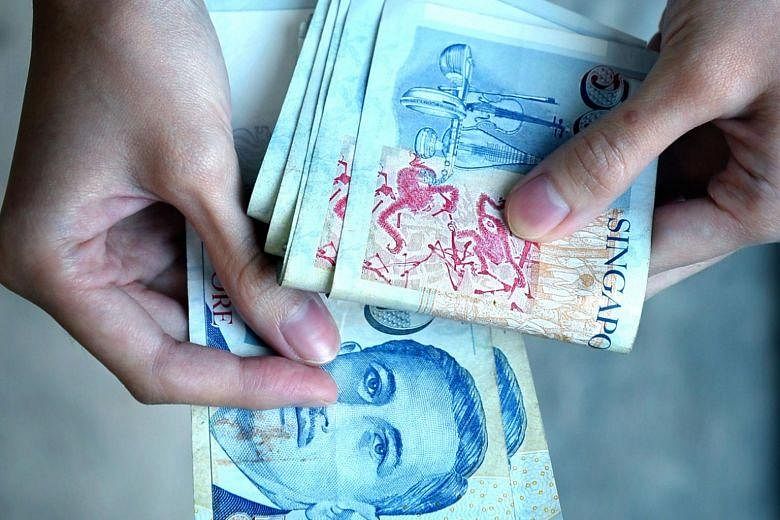SINGAPORE (BLOOMBERG) - South Korea's won slumped more than 1 per cent and the Singapore dollar slid to the lowest in almost three years as traders dumped riskier assets amid growing concern about the spread of the coronavirus.
The Singdollar fell as low as $1.4083 to the US dollar, the weakest since May 2017, before paring losses to trade 0.3 per cent down. The won sank more than 1 per cent to 1,201.95 per dollar, a level where policy makers may have previously intervened. The baht, the most sensitive in Asia to tourism, dropped 0.7 per cent to 31.406.
No Asian currency was spared in the rout which was triggered by a spike in confirmed virus cases in South Korea and two fatalities in Japan. The yuan retreated and the Australian dollar, which is seen as a proxy to the Chinese currency, slid to an 11-year low.
"The sudden sharp spike to 82 cases in Korea - contrary to slowing new cases in other parts of the world including China - is a wake-up call to market complacency," said Christopher Wong, senior FX strategist at Malayan Banking Bhd. The won, along with Asian peers such as the Singdollar, may be some of "biggest casualties" as the economic fallout continues to worsen.
The Thai baht tumbled to an eight-month low while the Indonesian rupiah and Malaysia's ringgit depreciated at least 0.5 per cent. The offshore yuan extended a decline past 7 per US dollar to trade at its weakest since December.
South Korea reported that the number of its confirmed virus cases more than doubled in a day, raising concern about the spread of the disease outside China. Japan said two people who were on a cruise ship off Yokohama, a man and a woman in their 80s, had died after being infected.
Market participants warned that regional currencies could be vulnerable to further losses, with policy makers having little room to act.
"The reality of an economic slowdown has hit home," said Alan Cayetano, foreign-exchange trading head at Bank of the Philippine Islands. "A further deterioration in emerging Asia currencies should be expected as central banks are boxed into a corner with lower rates."
Even stimulus from China - which had previously helped to stabilize sentiment - wasn't enough to allay concerns. Analysts questioned the effectiveness of a move by Chinese banks to cut benchmark borrowing costs for new loans.
A gauge of three-month implied volatility for the Bloomberg-JPMorgan Asian Currency Index rose 12 basis points to 4.36 per cent.
There could be "further downside pressure on Asian currencies in the near-term as investors assess the negative economic impact from the coronavirus outbreak," said Divya Devesh, head of Asean and South Asia FX research at Standard Chartered Bank in Singapore.











